In my imagination, New England cities have art museums and food critics and places where young people dance at night. Cities have people and places you can fall in love with. I firmly believe that places like Boston and Philadelphia and New York City are the most impressive things humans have made.
But those cities sound like ambulance sirens and motorcycle engines and loud music at all hours. They’re cultured but chaotic.
I think Yale is the training wheels version of New York City (more alumni move there than any other city) and when I was in college it seemed like everyone was rushing around, we were all the centers of our jam-packed lives, we all felt like everything we were doing mattered so much and it all had to get done so fast. So this is how I imagine those great northern cities.
But when I’m traveling from New Haven to Delaware it isn’t until I’m south of the taxis and traffic jams and skyscrapers of New York City that I remember how to breathe again.
Somewhere in New Jersey the crumbling factories and cluttered cemeteries give way to telephone poles and clusters of trees, the land flattens out and the highways flow straight and wide. And as we cross into Delaware I always think, I forgot the sky was so big.
At home my vision is nothing but road and sky and the ribbon of trees where they meet; just a few miles south of Wilmington it looks like there is more heaven than earth, as if civilization is just a scattering of silos and farmhouses settled in the corn fields beneath an impossible, endless blue.
In Delaware I live by sunrise and sunset, by high noon and golden hour, by the seconds between thunder and lightning. My life here revolves around the sky—gray and billowing with pregnant clouds of rain. Aflame with magnificent cumulus clouds, rosy and trimmed in gold. Blank and brilliant blue around a radiant noonday sun.
After just a few weeks in a city I had forgotten what it was like to look out and see nothing but sky, to read gibbous moons and cirrus clouds and know when the tide would come in and when the corn would be ripe and when dinner would be ready.
We tend to think that cities are cultural centers that connect us to the world, make global citizens, bring together people and materials and ideas. It’s even in our language: compare urbane and cosmopolitan to provincial and rustic.
But it’s only in places like this, where the streets and the skies go dark at night, that I remember my tiny place on this precious blue marble spinning around a ball of fire and rolling through dark galaxies.
By night I watch stars a million miles away and the nighttime Amazon planes; during the day I see fighter jets from the air force base wandering north on practice flights and wildfire smoke from Canada in a gauzy haze over the highway.
So it’s here that I remember lithium mines and burning forests and desert wars. Here I remember that I am walking on the same planet as eight billion other people, and we can name our nations and villages but we all share this one earth and all its oceans and rainforests and rivers and mountains. I have eighty-odd summers to stand here and look at the same stars as Ptolemy and Copernicus and Abraham before I join them in the dust.
But there’s something horrible about seeing the whole sky stretched out before you, accepting that there’s nothing protecting you from eternity. It only takes me a few days in Delaware to remember the emptiness that made me a bloodthirsty seventeen year old willing to do anything to leave this state behind.
I’m on my way home from lifeguarding when a magnificent cumulonimbus cloud crests the highway, extending thousands of feet above the earth, and I realize that clouds are larger than palaces and higher than skyscrapers. This sky is bigger and older than all empires. Oceans rise and kingdoms fall and the sky will just roll on, living the same majestic life since the day God separated it from the sea.
To be human is to be powerless and finite against time and the sky, and I miss the tiny, controllable chaos of city life that sheltered me from the truth that there’s nothing we build that will not crumble and nothing we say that will not be forgotten, nothing we can do with our short little lives that will stop us from returning to the dust.
I’m driving north one evening past barren fields with distant houses that look like they just let out long and heavy sighs. The trees are already shadowy but above them the sky is billowing with rosy clouds edged with gold, stretching miles high.
We are so young that the sky doesn’t even mind that we see her changing. We can grow corn and build houses, build highways, build cities, build nations—but nothing we do can compare with this ephemeral sunset glory.
It’s times like these that I remember that time is an undomesticated, unstoppable, inescapable, infinite thing and my life floats like a single boat on the surface of an eternal ocean. Like a weathered farmhouse amidst an endless field of corn. Like a small car alone on an infinite highway.
It’s a miracle that this sky hasn’t driven me any crazier than it already has.
At the beginning of this summer I just wanted to leave this slow flat state behind. I realized that I had made this place a personality trait, wrote my whole senior thesis about it, because of a repressed hatred that I was still trying to understand.
But as I prepare to move back to New Haven I realize there is something I love about Delaware—about this place where the sky is so big, this place where the earth is older than we are.
This is a place where I understand the truth of being human. I see little children and old women and I know where I came from and where I’m going. I plan my day around sunrise and sunset and let my body synchronize with the sky. I think about the sun and the road and the trees and the water. I hear birdsong so much I’ve tuned it out like white noise.
All my friends are physical therapists and nurses, everyone played sports in high school, and I love that people here are so aware of the human body—what it can do and what can go wrong. We think about district champion teenagers and their aging grandparents.
Everyone’s dad works for a chemical company, and I love that we’re a state that deals with the most basic building blocks of our world.
There’s nothing in Delaware except bare reality. We don’t even have sales tax. Life here is imperfect and unpretentious, and there’s something so freeing about allowing yourself to be nothing more than human in this unimaginably large and beautiful planet. You spend enough time looking at the sky and you start to understand that the world is far too big to carry its weight on your shoulders.
During one of my last lifeguarding shifts I’m walking around picking up noodles and forgotten goggles as we get ready to close the pool for the night, and as I look up at the sky, I think, we don’t really have museums here but we don’t need them because every night is a painting.
This beauty is unreal—gentle dabs of orange with purple shadows against periwinkle skies; swaths of rose and peach and flaming scarlet; this sky is a masterpiece that lasts for moments before fading into night.
It’s the end of July and all the other lifeguards are glowing, deep and sunkissed from a summer of working outdoors. The water behind them is still and dark blue as the last swimmers climb out of the pool and drip over to their towels, and as I stare up at the sunset I think, I’ll miss this place where the sky is big.

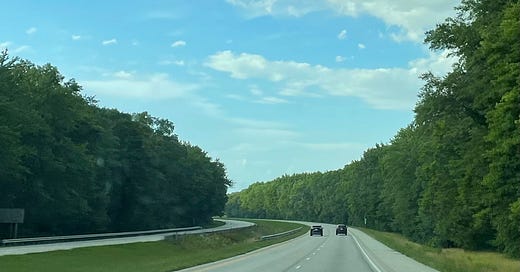



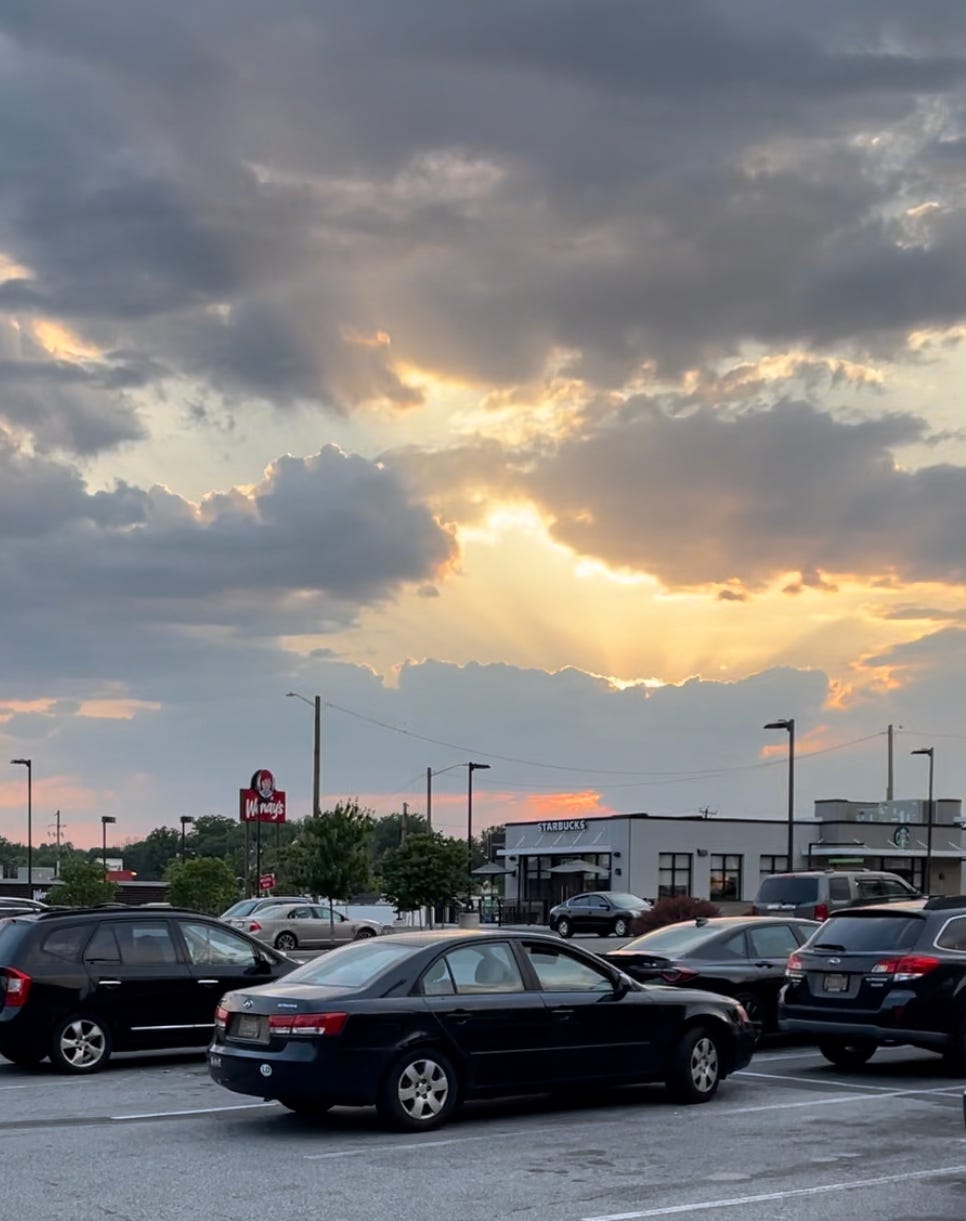
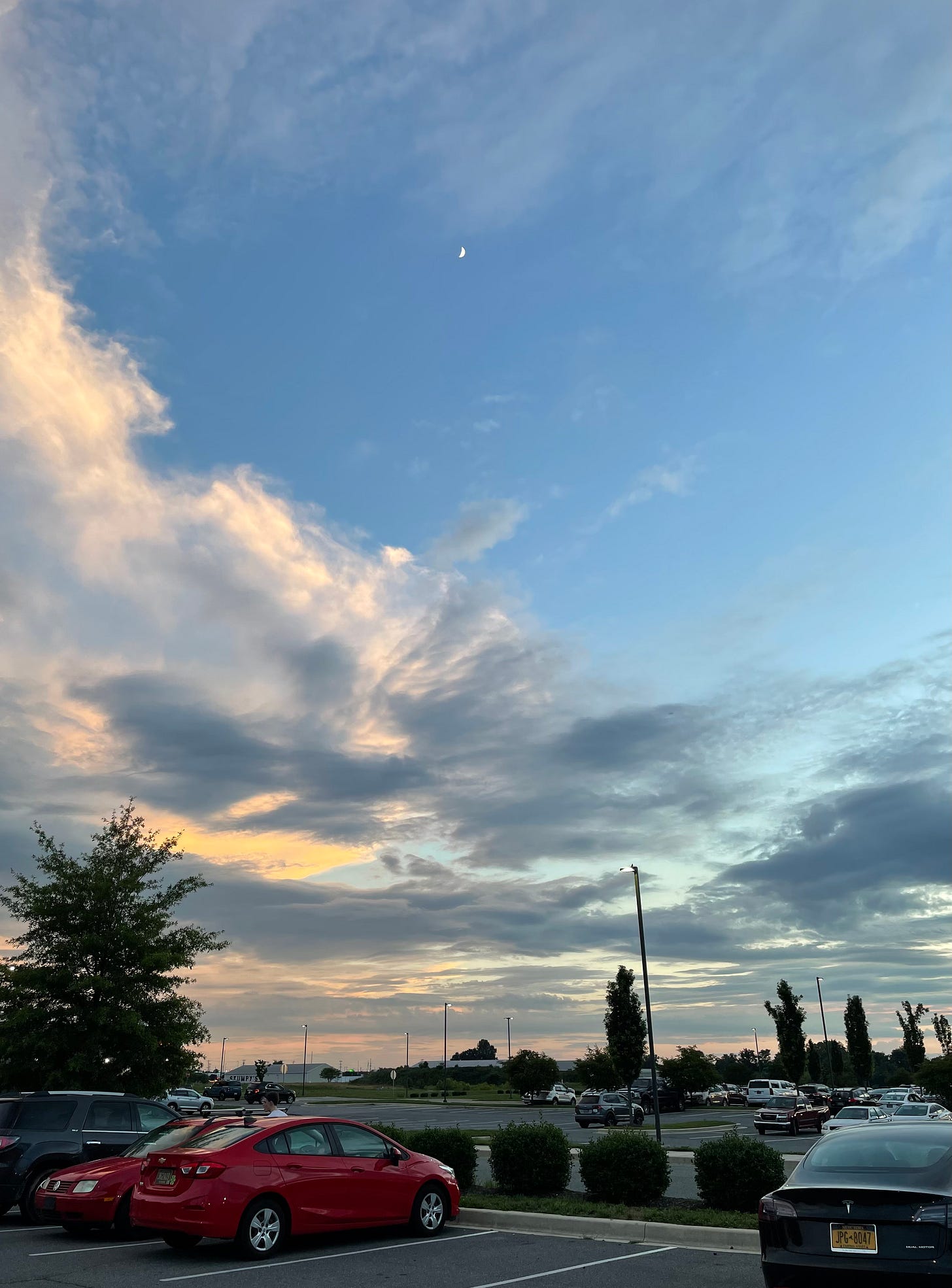
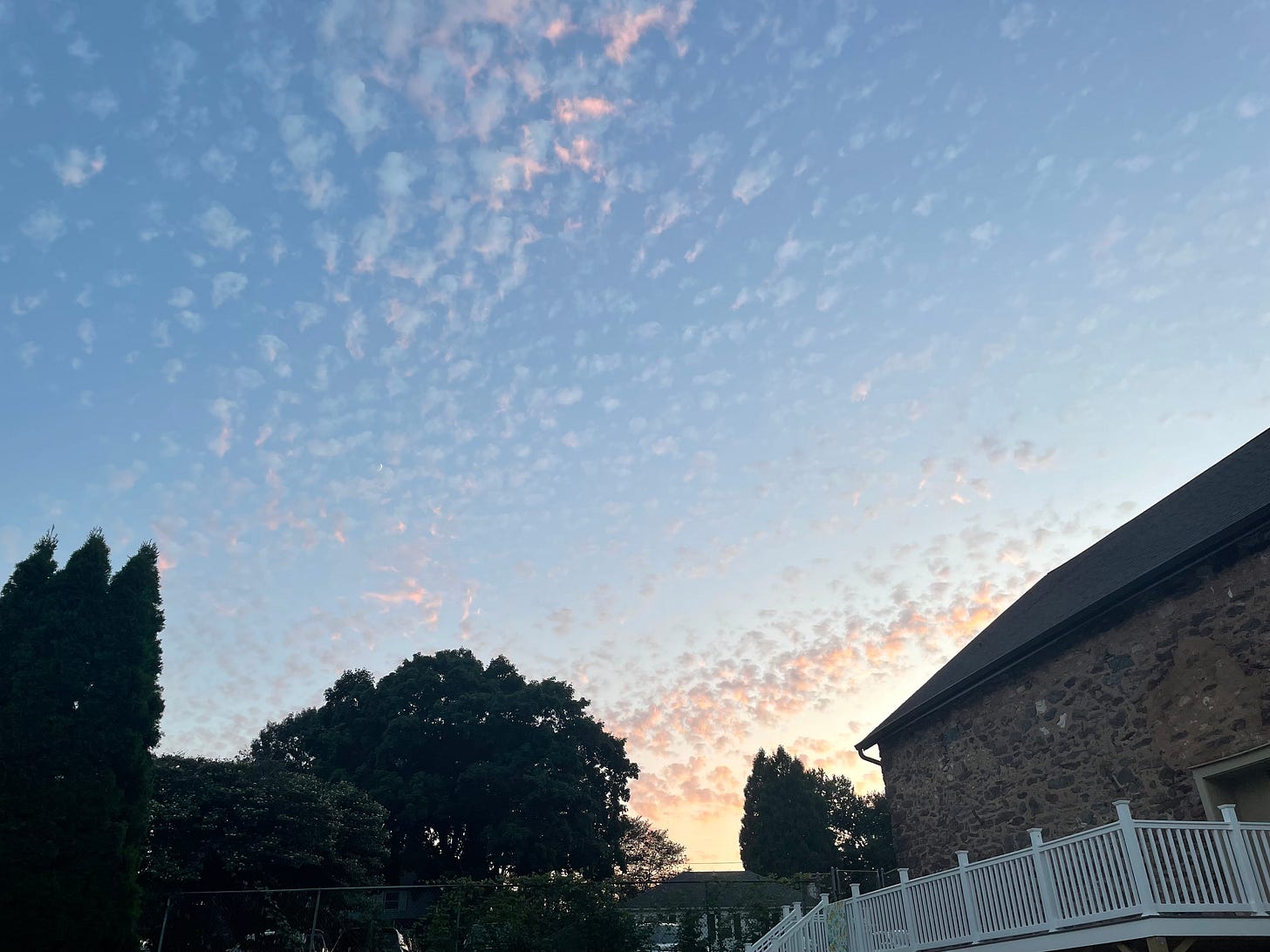
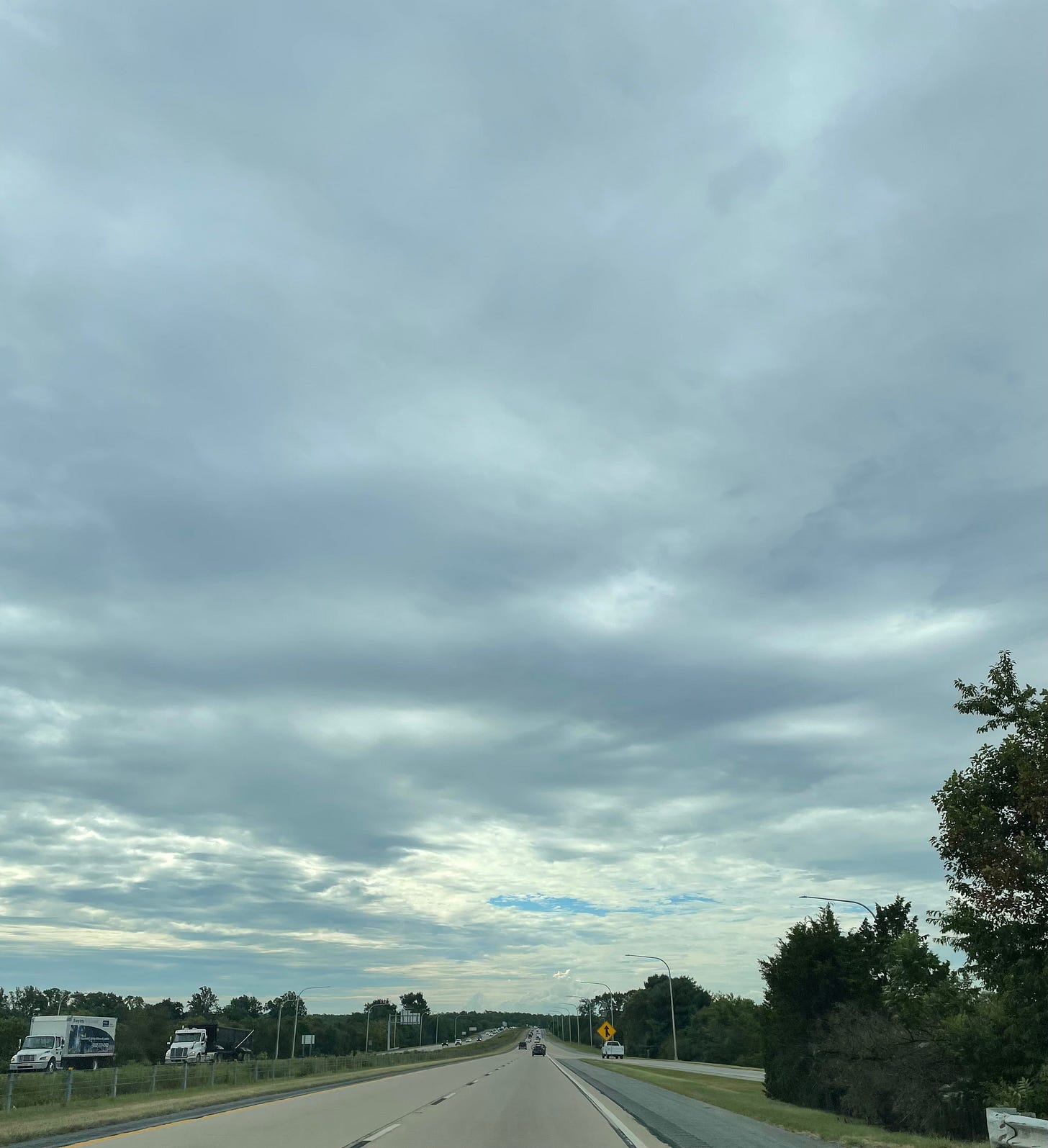
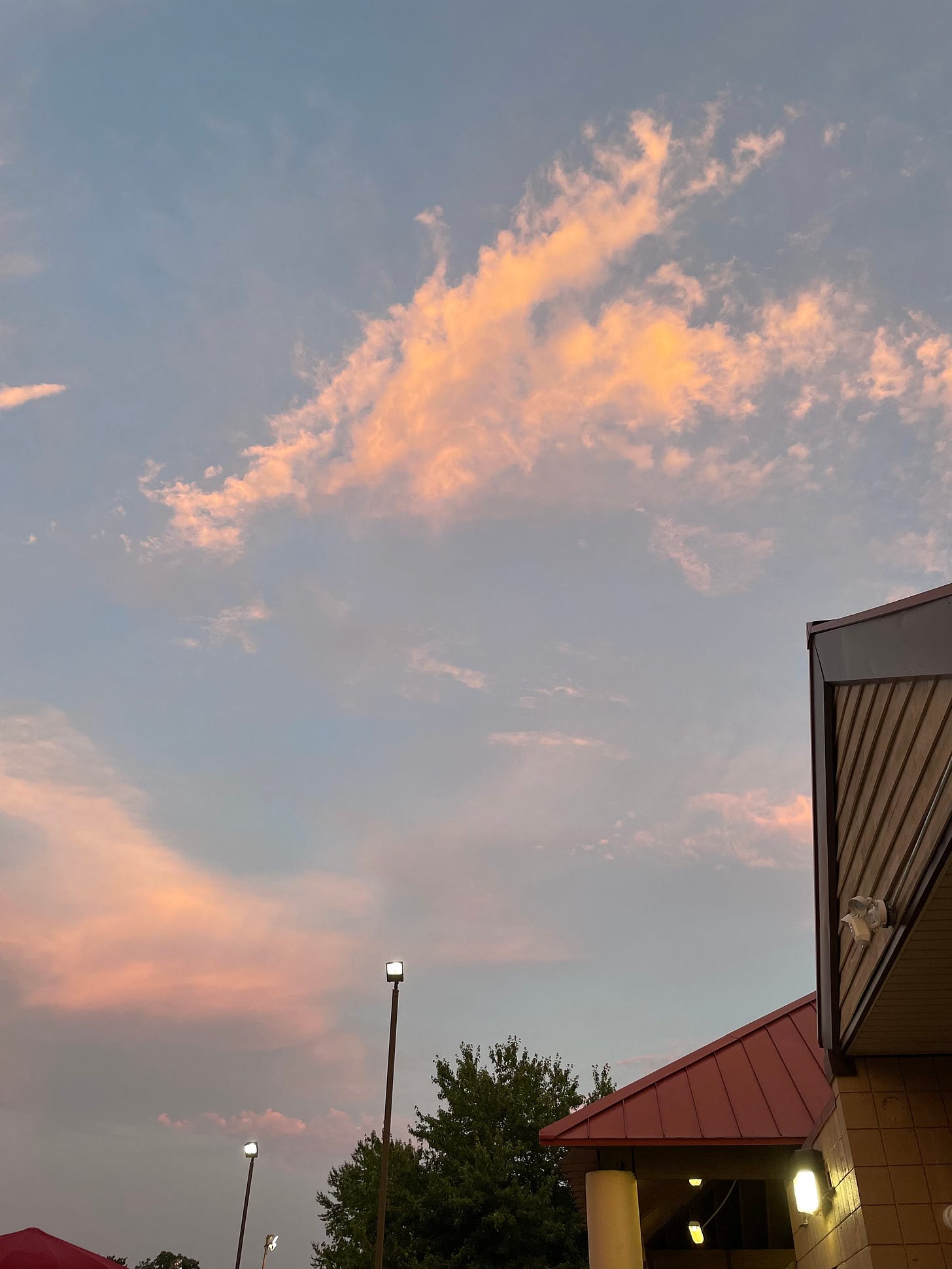
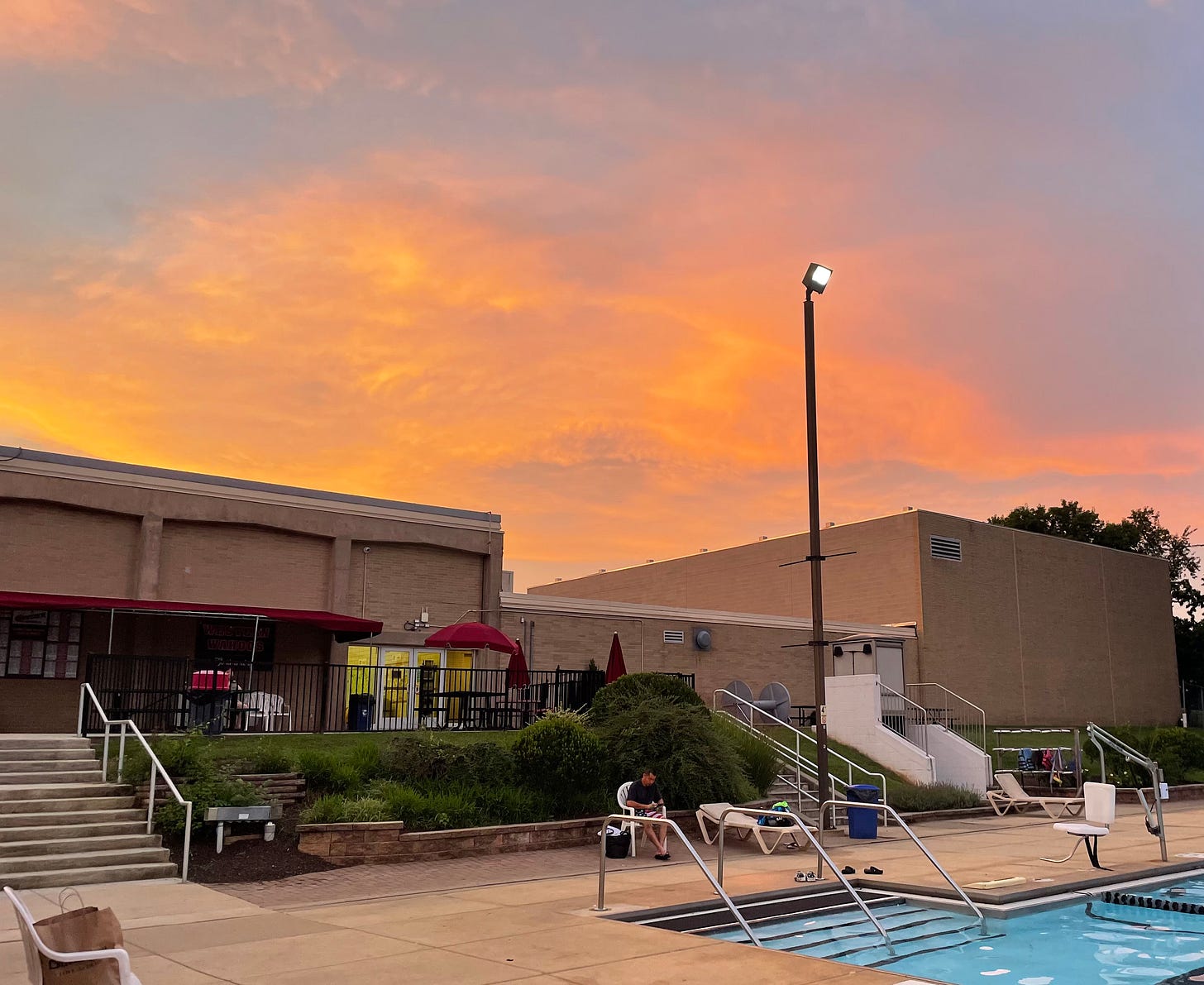
your descriptions of the sky were so detailed i felt like i was flying